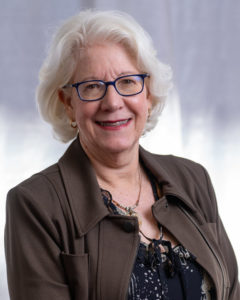
By Cindy Sheridan
Remember the early days of your business? You (and maybe a few key employees) did a bit of everything … meeting with clients, juggling projects, ordering materials, managing workers. It was a game like checkers, played quickly with mostly interchangeable pieces.
But as organizations grow in volume and complexity – especially in our industry, with new technology, new regulations, and new needs from customers – the demands on leadership change. The same old moves just won’t cut it anymore.
Chess, Not Checkers
I recently was turned onto a book – Chess Not Checkers, by Mark Miller – that really hit this point home. It’s the story of Blake Brown, the newly appointed CEO of a company that is experiencing poor performance and low morale. Nothing Blake learned from his previous roles seems to be helping him with these new challenges. The problem, his new mentor points out, is Blake is playing the wrong game.
As your business expands, you can’t just keep jumping from activity to activity. You have to move onto chess. You have to think strategically, plan ahead, and leverage every employee’s specific talent.
Not sure how to determine what their strengths are? What someone does well? What they were born to do?
Ask them.
Ask them about their abilities and passions. Some effective questions: “What do your coworkers rely on you most for?” “During which tasks do you lose track of time?” “What are you working on right now that you’re excited about?” “What is an accomplishment you’re proud of and why?”
Then be sure you’re appreciating them. In the book, Blake thanks every employee for their unique contributions (citing specific examples) and for sharing their strengths and passions with the company. Like Blake, when you’re able to identify people using their strengths and begin appreciating them, real change can happen in your organization, too.
Finding Passionate People
Likewise, in interviews, be sure to ask candidates what they really love doing. (Plus, you’ll be able to determine their enthusiasm!) Do their passions align with the mission of your company?
Then think about their ability to execute. Will they bring in new ideas and fresh perspectives … and have the leadership skills necessary (organization, motivation, and time management) to complete their duties and manage their team’s duties?
Also ask yourself, “is this candidate an effective brand ambassador for my company?” For other industries, this may only apply to executive-level candidates, but in your business, even your techs – especially your techs – are the face of your company. Make sure they’re going to represent you well with customers, vendors, etc.
These Are Changing Times
While we as an association – and many of our member companies – honor the legacy of those who went before us, the fact is that times are changing. What used to be a “nice to have” skill is now a “must have.” Expect candidates to be up to date on a technological level. From the CEO to any position in your organization, knowledge of the technology tools available – and how to use them effectively on the job – should be embedded in any new hire.
Consider the need for new roles in your company that may not have been as important in past years … areas such as workforce development, business analytics, diversity and inclusion, and sustainability.
Finally, know what matters most to your employees, and build your benefits so that you can hold onto them. Many organizations are rethinking human resources as a strategic function that can help you reach your goals. Consider reviewing and possibly expanding your benefits to match the needs of your employees. Some “trending” areas I have heard mentioned recently include employee wellness programs, flex time, continuing education, employee assistance programs, mental health days, and pet insurance.
What once was is no longer enough. Transforming your organization doesn’t necessarily mean you have to work harder, but you may need to work smarter and more strategically.
Cindy Sheridan, CAE is Chief Executive Officer of PHCC—National Association. With decades of association management experience – most recently as the Chief Operating Officer of the PHCC Educational Foundation – Sheridan and her team work to ensure that PHCC contractors are the best choice for professionalism, reliable products, and knowledgeable service.
